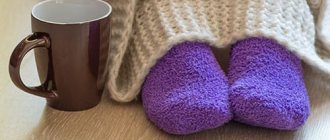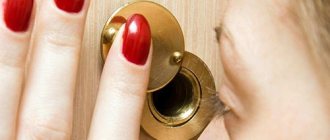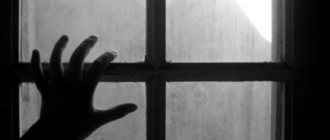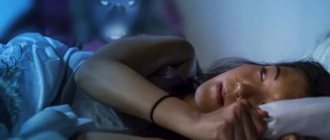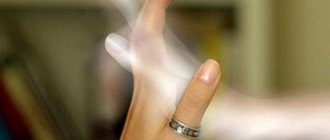- Sleeping regularly, going to bed and getting up at the same time is the most important thing.
- Biorhythms are partly inherited and partly regulated by lifestyle. You can influence them yourself.
- Normal bedtime is around 10:00 pm. An owl and a lark are a deviation of ±1-2 hours. More is a disruption and shift in sleep phase, often due to external stimuli.
- The most common cause of poor sleep and difficulty falling asleep is improper light.
- To shift the regime by 1 hour, the body needs 1 day to adapt.
- It is impossible to “finish” a sleepless night. Getting enough sleep only eliminates 30% of the effects of lack of sleep.
- Before looking for causes of poor sleep, rule out psychological problems (anxiety, depression), thyroid disorders, iron deficiency, diabetes, cardiovascular diseases and pathologies of the kidneys and genitourinary system.
- For drivers and passengers: 17 hours without sleep equals 0.5 ppm, 21 hours without sleep equals 0.8 ppm.
- Do not stay in bed without sleep for more than 15 minutes - advice for insomnia.
- The most physiological alarm clocks are those that glow.
Below the cut is a synopsis of a 2-hour speech about sleep for 15 minutes of reading. Another point to add to the collection of useful materials about sleep is Sleep Hackers.
Abstract navigation:
- The influence of sleep on work
- Causes of sleep disorders
- Sleep analysis
- Sleep tips
Skip to video.
Owls and larks are common folk concepts. In somnology there is the concept of “sleep phase shift.” Most people fall asleep around 10:00 pm. A sleep phase shift of more than 4 hours is no longer a night owl/lark, but rather a diagnosis of “sleep phase shift.”
If owls and larks are left indoors without identifiers such as sunlight, their rhythms will differ by an hour or two, no more. More - already hyper-owls and hyper-larks, this is just about the shift in sleep phase.
Biorhythms are partially regulated by genes, but there are also acquired features of biorhythms.
Owls and larks are equally effective if they perform tasks at intervals corresponding to their biorhythms. But early-morning employers are more biased towards their night-owl employees. Although if you allow an owl to shift his schedule for a couple of hours, he will produce results that are not inferior to a lark.
Biorhythms and work schedules are not always compatible. Nowadays, employers take biorhythms into account more and offer flexible schedules. Here's what it can do:
In Russia, workers sleep poorly at least 1 day a week.
The worst is for managers, the best is for employees and individual entrepreneurs.
A manager is often a leadership position, and poor quality sleep affects leadership, reducing creativity, memory, and concentration.
Consequences of lack of sleep
Some people are more “inspired” after a sleepless night. The state of stress in the body allows them to cope with lack of sleep in the first half of the day. But a person with a lack of sleep is more anxious and overeats more often, which in the future threatens to gain excess weight.
Sleep affects the immune response; if you don't get enough sleep, you're more likely to get sick.
RAM suffers; one sleepless night is enough for interruptions.
In Russia, 20% of road accidents are related to drowsiness. In Europe and the USA, professional drivers are examined regarding the quality of their sleep, for example, a professional driver will not be allowed to fly unless he provides a report on the treatment of snoring.
Even one “missed” night reduces the number of gray brain cells.
Chronic lack of sleep affects metabolism. Testosterone peaks during sleep. It causes morning erection. For those who are interested in knowing if his testosterone levels are okay, here is a samurai test from urologists. If you have a morning erection every day for 7 days, then everything is fine.
Growth hormone, which helps children grow, has a different function in adults. In adults, it is responsible for energy metabolism. This is the thing thanks to which you don’t wake up at night and go to the refrigerator, and in the morning after waking up you don’t experience a hellish feeling of hunger for another couple of hours. If you want to lose weight, sleep well.
Diabetes. Every second person now has problems with carbohydrate metabolism. If you feel sleepy after eating, it could be a sign of insulin resistance, which is often the start of diabetes.
Sleepy and drunk driver. 17 hours without sleep equals 0.5 ppm, 21 hours without sleep equals 0.8 ppm.
The less sleep, the higher the stress.
Mechanism 1: Circadian rhythms
All animals and plants have internal "clocks" that synchronize with environmental signals. The most important of these signals is daylight.
Circadian rhythms control our sleep, appetite, attention and concentration, body temperature, brain activity, hormones, cell renewal, repair and many other things. Thus, the levels of melatonin (sleep hormone) and cortisol (stress hormone that provides the body with glucose) directly depend on them. And it doesn’t matter whether a person is sleeping or not.
Other hormones are controlled by sleep. Growth hormone increases during deep sleep and is responsible for tissue repair, renewal and restoration. Thyroid-stimulating hormone, which is produced by the thyroid gland and controls metabolism, decreases during sleep.
The circadian clock is an area in the hypothalamus about the size of a pinhead, one in each hemisphere of the brain. There are about 20,000 small nerve cells called neurons. They send signals to other parts of the brain using dozens of neurotransmitters. This is how circadian rhythms control many processes in the body.
Interestingly, each neuron has its own 24-hour rhythm, so the circadian clock appears to operate at a subcellular level.
Circadian rhythms, relying on nature's own internal clock, do not require light or dark to operate. They work even if a person is completely cut off from daylight. But the cycle of light and dark helps them synchronize with the external environment and avoid "cumulative" errors that can cause system failures over time.
Circadian ri within a couple of hours, depending on the person's chronotype. This defines larks and owls.
Not all people are divided into night owls and larks - it is believed that up to 20% of people fall into these categories. Their circadian clock is shifted in one direction or another, and this is partly encoded in their genes. Sometimes deviations from the “norm” are difficult to deal with, which can worsen the quality of life.
The impact of lack of sleep on production
Increased costs for sick leave, for eliminating errors due to lack of sleep, decreased performance and inability to make decisions.
If converted into money:
What is chronic sleep deficiency
When you only have 8 hours of sleep deprivation, you need to lie down and get some sleep.
But this does not completely solve the problem. English somnologists believe that by getting enough sleep afterward, you eliminate only 30% of the consequences of lack of sleep. Daytime sleep. For new parents or shift workers, napping is the only option. But judging by studies of shift workers, napping during the day does not completely compensate for the consequences of a sleepless day.
Short bursts of sleep, 15-30 minutes, judging by the latest research, are normally perceived by the body.
Social jetlag
Aka weekend syndrome, aka Monday syndrome.
In 2007, European researchers noticed that residents of large cities were making changes to their weekend routine.
When on Friday after the work week people go to bed several hours later, and on Saturday and Sunday they sleep until lunch, trying to make up for the sleep deficit during the week.
The greater the shift in hours for getting enough sleep, the greater the risks of depression and addiction.
To understand what shift you have, look at the difference in modes. Ideally, you should count from the middle of sleep, but the time of awakening is also suitable. For example, if you wake up at 6 on weekdays and at 9 on weekends, then your social jetlag is 3 hours. And for every hour of jet lag you will need a day to adapt back. Those. Monday, Tuesday, Wednesday - the body will spend energy adapting, you will not be able to give 100%.
If there is a lack of sleep, look at the duration and frequency of disturbances.
Is it true that during adolescence there is a regime shift towards the night owl?
Children sleep more than adults. They go to bed early and get up late. During adolescence, the schedule shifts increasingly to later times. And in the process of growing up, around the age of 20, there will be a rollback towards an earlier rise.
Humanity as a whole sleeps less than it did 50-70 years ago.
There may be many psychological disorders associated with this. Unclear. But people also work less:
We used to sleep more and work more. Now we work less and sleep less. This may be due to lighting.
Illumination using the example of North America:
The amount of light has increased. Many somnologists believe that the main reason for lack of sleep is the light bulb. The more light there is around you, the more likely you are to lack sleep.
Data from the now defunct Jawbone:
Their statistics showed that Moscow residents:
- sleep 6 hours 42 minutes on average.
- everyone in the country goes to bed later
- they wake up later than everyone else in the country
- there is not a single moment when all the residents are asleep
- During the weekend there was always a social jetlag at average levels
- During the New Year holidays, many people do not sleep for several days
Social networks are an indirect indicator of sleep disorders.
How active are users on social networks in the evening:
Lifestyle and sleep habits affect sleep more than work:
But the data above is a survey, it’s just people’s opinion.
Separately Russian statistics:
Does your smartphone's night mode work? (warmer colors)
I used to recommend him to everyone. But a study has come out that says this regimen is 60% effective. So this regimen will not eliminate all the harm from radiation into the eyes before bedtime.
Somnologists have 3 pairs of glasses. Solar - so that the light does not hit the retina when traveling. Light therapy glasses - to shine light into your eyes in the morning and wake you up. And orange, so that the computer screen in the evening does not interfere with falling asleep at night.
In general, the white-blue spectrum is the most undesirable for melatonin.
What is the most common sleep disorder?
If we are talking about revision of the sleeping place, then the most common reason is the light.
If we are talking about visits to a somnologist, then men come with snoring, because... their women complain about it. And women with insomnia. At the same time, men are more likely to suffer from problems, but are less likely to seek treatment, while women are more likely to report problems, but are less likely to suffer.
Mechanism 2: sleep-wake balance
Circadian rhythms alone are not sufficient to induce and control sleep. There is another mechanism - maintaining homeostasis (balance) of sleep and wakefulness.
This is an internal system that works as a kind of timer or counter. After a certain time, it reminds the body that it is time to sleep. The longer we are awake, the stronger the desire and need to sleep, and the greater the likelihood of falling asleep quickly. The longer we sleep, the less desire to sleep and the easier it is to wake up.
The body produces substances that accumulate in the cerebrospinal fluid while you are awake. When there are a lot of them, we feel tired and drowsy. At first the sensations are mild, but then they become stronger and stronger, until you can switch off and fall asleep on the fly. During sleep, the concentration of these substances decreases sharply.
The most famous of the substances is adenosine. It accumulates throughout the day as a natural byproduct of energy production in the body. Adenosine triphosphate (ATP) is a universal molecule that provides energy to all processes in the body. The body “burns calories” for energy is quite conventional. In fact, it “burns” ATP.
When adenosine accumulates a lot, it begins to impede and “turn off” many processes associated with wakefulness.
That is, a large amount of accumulated adenosine tells the body that we spent a lot of energy during the day, its reserves have decreased, and it’s time for rest and recovery.
Stimulants such as caffeine block the body's sensitivity to adenosine.
Normal sleep
Criteria for normal sleep for adults:
There should be no awakenings at night, including to go to the toilet. In men, such risks increase by 10% every 10 years, so that by the age of 90, almost everyone gets up to go to the toilet at least once a night.
If you feel the need for a daytime nap, think about the reasons. Often this is poor quality sleep at night, a painful condition, increased cognitive or physical stress.
You need to sleep 8 hours, 8 hours is the norm for everyone (no)
Where did 8 hours come from? Sleep studies have shown that this number most often correlates with the highest levels of well-being. If you feel healthy and happy with less sleep, everything is fine.
Jumping out of bed right away is not entirely correct. There is the concept of “sleep inertia” - the body needs some time to completely transition to normal functioning.
The fastest ways to cope with sleep inertia are washing with cold water, bright light and coffee.
In the graph above you can see the peak and trough hours of activity for the average pigeon.
The first point any somnologist’s patient starts with is a sleep diary. You need to fill it out for at least 2 weeks to catch the social jetlag.
Gadgets. The most accurate is not
the medical device will show the stages of sleep with 80% accuracy.
According to the new classification, there are now 4 stages of sleep:
Surface
- Stage 1 - about 15 minutes
- Stage 2 - about 50 minutes
Deep
- Stage 3 – 20-25
Fast
- Dreaming stage (REM stage) - 20-25 minutes
Most trackers now quite accurately determine the beginning and end of sleep, although trackers 5 years ago were often off by 1.5-2 hours.
Many people love the Oura ring because of the convenience of the gadget, but its accuracy is not more than 60%, one of the less sensitive gadgets.
When falling asleep, many people experience a jump in skin resistance - many gadgets rely on this parameter, but this does not happen for everyone. If this parameter is the only one for the gadget, sleep data is lost. You can also look at your pulse. And movement. This is all that is available to the ring.
For hoops that are placed on the head, the error appears due to the fact that the head rotates separately from the body - the head is on its side, the body is on the stomach. It is assumed that during dreams there are no movements other than eye movements; this is even built into the definition of the “rapid eye movements” stage.
Any non-medical device has too few channels compared to the same polysomnography. It requires 14 sensors according to the classification of the American Academy of Sleep Medicine. The most sophisticated gadget will have 6-7 sensors.
It is likely that slip trackers will increase their accuracy not by increasing contact with the human body, but by the accuracy of the algorithms.
How much sleep do you need?
The average adult needs about 8 hours of sleep per night, but this is a very general guideline. We can say that there is enough sleep if a person does not experience daytime sleepiness and feels alert and active during the day. In practice, this requires not only a minimum amount of sleep, but also its quality - that is, a sufficient number of cycles of slow and fast sleep.
Today it is already known that genetics partially regulates how much sleep a person needs. Thus, the DEC2 and ABCC9 genes are responsible for sleep duration. Some people with gene mutations may need as little as 3-4 hours to get enough sleep to recover.
Age is the most important factor that determines sleep norms.
With age, not only the duration of sleep changes, but also its quality and composition of phases. For example, a newborn needs from 12 to 18 hours of sleep per day, half of which he spends in the REM phase (in the womb, REM sleep reaches 80% of all sleep).
In older people, the depth of sleep decreases: the share of REM sleep can drop to 15% or lower. Deep slow-wave sleep is also affected, causing shallow, restless sleep and compromising the immune system, making people more vulnerable to disease.
In 2021, the National Sleep Foundation released updated sleep duration recommendations for people of different ages. A meta-analysis of more than three hundred studies was conducted, in which not only sleep specialists, but also anatomy, physiology, neurology, psychiatry, pediatrics, etc. took part. Today, this is the most scientifically up-to-date recommendation for healthy sleep.
Lack of sleep and sleep debt
If you do not get enough sleep regularly, so-called “sleep debt” appears, which is characterized by mental, emotional and physical fatigue, decreased daily activity, memory deterioration, increased reaction time, muscle fatigue, tremors, decreased body temperature, and increased stress hormones in the blood.
Sleeping less than 6 hours for two weeks reduces attention and productivity as if the person had not slept for a full 24 hours. Four hours of sleep during the week is equivalent to 2-3 days without sleep.
Unfortunately, one of the consequences of sleep deprivation is impaired perception (similar to the effects of alcohol). Thus, we do not always notice the degree of decline in mental and physical activity, even when the situation continues to worsen. People simply don’t notice changes, and if they do, they blame it on problems at work, vitamin deficiency, etc.
After sleep deprivation, the body tries to catch up, but the sleep design changes. On the first night, priority is given to deep phases of slow-wave sleep to restore and repair body structures and the immune system. Only after these important functions have been completed is REM sleep restored on subsequent nights.
Sleep disorders
The causes of sleep disturbances can arise not only from the lifestyle side, but also from the health side.
So we need to exclude the states:
- Anxiety and depression
- Thyroid dysfunction
- Iron deficiency
- Insulin resistance and type 2 diabetes mellitus.
- Cardiovascular diseases
- Pathology of the kidneys and genitourinary system
For example, Moscow is an area with frequent iron deficiency and thyroid disorders. Iron is necessary for the production of thyroid hormone. You can replenish iron levels by controlling it with ferritin. This eliminates anemia, and as a result, leg movement during sleep. And also eliminate the symptoms of subclinical hypothyroidism - decreased thyroid function, which does not manifest itself at the hormonal level, but gives symptoms.
How do the symptoms appear:
Anxiety
— first half of the night, it’s difficult to fall asleep. Depression is the second half of the night, people wake up and can’t fall back to sleep.
Thyroid dysfunction
- drowsiness and weakness during the day, but inability to fall asleep in the evening. Plus, swelling, sagging muscles, and dry heels may appear. You can take blood tests for T3, T4, TSH to check.
Iron deficiency
- also a blood test, this time for ferritin.
Insulin resistance
- craving for sleep after eating, sweating, weakness. Checking the HOMA-IR index means donating blood sugar and insulin on an empty stomach on the same day.
Diabetes mellitus type 2
- fluctuations in sugar levels, but less insulin is produced. First, check your blood glucose.
Cardiovascular diseases
often affect awakenings at night, for example due to arrhythmia.
Pathology of the kidneys and genitourinary system
. We are not currently considering inflammatory diseases, for example, cystitis. We're talking about waking up at night to go to the toilet, for example. In men over 40 years of age, there is an increased risk of prostate adenoma. Women have an overactive bladder - due to stress, the urge to urinate is too frequent.
Daytime sleep was included in the recommendation in 2021.
Here's a study that compared early naps to afternoon naps.
If you want to compensate for the lack of sleep from the night, take a short nap early, and the fatigue of the day helps relieve afternoon naps. The shorter interval wins.
Department of slow and rapid sleep
It seems that our body has two main states: sleep and wakefulness. Actually this is not true. At this point, sleep specialists often refer to the ancient Indian treatises of the Upanishads, and this is truly a fascinating story.
The Upanishads say that there is wakefulness, when a person is aware of the world around him, sleep with dreams, where he forms a new world from what he saw in wakefulness, and sleep, in which we are freed from desires, worries, and the bonds of the body, merge with Brahman and experience bliss. These three forms of consciousness are combined in the form of a superconscious true Self - but scientists, alas, have not found it. But they have proven that we really experience the first three states as in the Upanishads: wakefulness, deep slow-wave sleep (Non-REM sleep, the one that is most similar to the standard idea of sleep as a rest for the body) and rapid sleep (REM sleep, REM sleep, in which our brain works in a very special way).
Why such difficulties? Nobody knows for sure. A beautiful explanation of the changes in sleep phases is given by a British neuroscientist, professor at the University of California at Berkeley and author of the book “Why We Sleep. The new science of sleep and dreams" Matthew Walker: sleep is a spring cleaning of the brain. Unnecessary memories are deleted, relevant ones are played back and transferred from short-term memory to long-term memory. During slow-wave sleep, the brain identifies junk—unneeded neural connections—and removes them. During REM sleep, we reflect and strengthen neural connections - perhaps that’s why we dream.
It is important that both phases are present in our sleep. Lack of REM sleep makes us less able to recognize other people's emotions and regulate our own—that is, lowers our emotional IQ. Interestingly, children with autism have less REM sleep than children without the disorder (although it is too early to say whether there is a cause-and-effect relationship). Selective deprivation of rat pups in REM sleep experiments distorted the formation of synapses between neurons in the nervous system and made them withdrawn and depressed as adults.
Similar studies using deep sleep deprivation slowed the brain development of rat pups and made them less socially active. As for the sleep of adults, it is ineffective even without the intervention of scientists: by the age of 40 a person loses 60-70% of deep sleep, by the age of 70 - 80-90%. These numbers are not harmless: along with deep sleep, we lose the ability to learn and remember, and we also accumulate toxic amyloid protein in the brain and because of this we risk developing Alzheimer’s.
You don't have to wait until you're 70 to experience the effects of sleep deprivation. In the first half of the night we experience slow-wave sleep with short periods of fast sleep, in the second half - fast sleep interspersed with slow sleep. By falling asleep at midnight and sleeping for six hours instead of the required eight, we lose not 25% of sleep, but 60–90% of REM sleep. And falling asleep at two in the morning and waking up at eight in the morning - a certain amount of slow-wave sleep. REM sleep is also blocked by alcohol, many antidepressants and sleeping pills. But more on that later.
Alcohol, caffeine, food, nervous system stimulants
All bad habits turn into bad sleep habits.
An alcoholic's sleep is sound, but short. The body processes alcohol and after 1.5 - 2 hours alcohol metabolites appear, which have a stimulating effect on the body.
Plus, alcohol makes breathing worse. There is a list of risks of respiratory arrest, and if you have 2-3 risks, then alcohol should not be taken later than 2-3 hours before bedtime. For example, if you are overweight, you snore and you are a man, then this is enough. 2-3 hours from the moment of drinking alcohol allows the body to have time to produce stimulating metabolites and remove the relaxing effect from the respiratory muscles.
There was one small study, which is now almost impossible to find, which suggests that any amount of alcohol leads to toxic damage to the body, incl. brain.
From the point of view of a somnologist, this is bad and is not an option.
Caffeine. 6 hours before bedtime, do not drink coffee, tea, tonics, energy drinks, matcha, chocolate, cocoa, or cola. You can look up tables of caffeine content in foods and drinks. Guarana—commonly found in sports supplements—is similar to how caffeine works. Caffeine takes about 30 minutes to reach its effect. Moscow State University conducted a study and found that caffeine interferes with the absorption of iron and causes chronic insomnia.
By using nootropics, stimulants, adaptogens when lacking sleep, a person stimulates an exhausted body.
Eating less than 2-3 hours before bedtime can also cause insomnia.
2 hours before bedtime is the period that needs to be free from any irritants.
if you have problems falling asleep.
This applies to training with heavy loads. A good exercise 2-3 hours before bedtime is a walk. And heavy training in the interval of 14-17 hours helps you get up earlier - note to night owls. Later workouts help you fall asleep later - note for early risers.
If you choose a workout based on your depressive state, it is better to choose aerobic training. Moreover, for depression, the pulse should be submaximal, and if there is anxiety, it should be higher.
The less light and noise, the better. There are white noise generators. The body functions well in a stable environment, this can help if there are sharp, non-monotonous noises nearby.
Dreams and their meaning
Let's look at what dreams mean. Quality sleep contributes to success in a person’s life, including work and personal life. The main advantage is its help in maintaining good health. When a person sleeps, the body produces the necessary hormones, tissues are regenerated, lost energy is restored, and certain areas of the brain are activated.
If a person wants to sleep, it is difficult for him to cope with some tasks. And when you wake up, the work seems easy - everything is solved without problems. This is explained by the selective (selective) erasing of unnecessary information from memory, which occurs precisely during sleep. The brain carries out an analysis in which it transfers important information received during the day to a special “archive” for long-term storage. This is how memories appear. In addition, a person becomes more receptive to new knowledge and concentrates attention better.
Lack of sleep threatens a person:
- deterioration of cognitive functionality, self-control, speech control, etc.;
- decreased protective functions of the body;
- problems with excess weight;
- deterioration in labor productivity;
- loss of motivation;
- the emergence of bad habits and deterioration in well-being and mood.
Myths about sleep
In order to get enough sleep, you need to go to bed on a different day than when you need to get up.
An aphorism hinting at going to bed before midnight. Not entirely true, although the message is good.
Somewhere on the Internet there is a sign about what hours of sleep are most productive. This is not true at all.
The main thing is regularity and exposure to time-setters: light, melatonin production, sleep frames.
For example, if a hyper-owl with a shift in sleep phase creates regular conditions of complete light blackout for up to 12 hours, then she will be able to produce melatonin and will reduce the cancer risks associated with melatonin.
Sleep regularly, go to bed and get up at the same time
- the most important.
8 hours of sleep is the golden norm. Myth. Depends on the needs of a particular organism.
You can’t sleep on your left side, it compresses your heart - a myth. This may be true for people with some kind of heart failure, but for a healthy person it makes no difference which side to sleep on.
The room should have
- Quiet
- Dark
- Chilly
- Freshly
- Comfortable
- No allergens
The most physiological alarm clocks are those that glow.
The temperature in the bedroom for the USA and Europe is about 18 degrees - the norm. In Russia, 21 degrees is already an achievement. During deep sleep, our temperature drops. If you are in deep sleep, your temperature is low, or the other way around, when you lower your temperature, it is easier to reach deep sleep.
Fresh - CO2 sensor to the rescue. For example, often couples who have sex before bed, but do not ventilate the room afterwards, get a headache in the morning.
Comfort is about a mattress, blanket, pillow. Minimum 70 cm mattress per person. The blanket should not be pulled off you. The pillow should suit you.
A heavy blanket is good and healthy, especially for anxious comrades. One way to calm someone with developmental disabilities is to give them a big hug. Animals are calmed by squeezing their sides. A heavy blanket is soothing.
Ways to Improve Dream Decoding
Whatever decryption method you choose, you need to act according to a certain algorithm in order to find the main thing in a dream and decipher the key points, getting rid of unnecessary details that do not carry any semantic load.
Decoding the dream: the dream book and intuition will help you.
In order to decipher a dream, you need:
- Master dream memory. If you don't remember your dreams, there will be no point in solving them, since you simply won't be able to remember any of the details with the clues. However, sometimes even those people who do not have a good dream memory can remember parts of their dreams and try to decipher them. This decryption method is not very reliable, but in the absence of a better one, you can at least use it.
- Remember the details. When you wake up in the morning, try to remember your entire dream, without losing sight of even the smallest details. This aspect is very important, because sometimes the main meaning lies in the details, and the intricacy of the plot confuses more than it suggests ways to solve problems.
- Structure your story. Divide the remembered parts of the dream into several components: the beginning, the climax, and the denouement. If we draw an analogy with a film, it will be easier to unravel the message and get rid of unnecessary details.
- Give your sleep a key rating. This is an extremely important point for decoding, since each dream can be described in one word, which will contain the main meaning. It doesn’t matter how many things or details you see, the most important thing will always be the center of the dream, it is this detail that you will remember best. For example, if you dreamed that you were in a stable and wanted to ride a horse, then the key words of such a dream would be either stable or horse, although the details, as well as the actions that you performed in them, would play an important role.
- Add details to the interpretation. Once you decide on the keyword for your dream, use one of the decoding methods - either a dream book or your own intuition.
More details about methods of interpretation using dream books and intuition are described below.
Pose
Californian scientists used functional MRI to observe labeled atoms in the cerebrospinal fluid.
Cell breakdown products, such as the protein amyloid, which is associated with Alzheimer's disease, are better eliminated on the side. The removal of decay products on the back is slowed down. It is not recommended to sleep on your back for people who snore only in this position - this is called positional therapy.
On the stomach, the removal of decay products practically stops. Plus, orthopedists threaten neck problems.
People who suffer from respiratory arrest when lying down can sleep sitting, but there is no need to strive for this. Carpets, plants, animals, rare changes of bed linen, old pillows, mattresses, blankets are allergens. This interferes with healthy sleep.
What can help you solve your dream?
Since people have been studying dreams for many centuries and trying to find a certain relationship between them and reality, many works have been created that describe the interpretation of dreams. These works are known to most people as dream books; they contain all the wisdom and knowledge of scientists and researchers.
How to solve a dream. With the help of dream books, you can find answers to many questions about new aspects of your personality, secrets of the past or future, secrets of the present, as well as other answers that torment people in their real lives.
To decipher dreams, you need to follow clear rules. If you take them into account, then there will be no big problems with solving them.
There are at least two ways to solve messages:
- With the help of a dream interpreter.
- Using intuition.
Each of these methods has its own advantages and disadvantages, but it is up to you to decide which method to use for decryption.
Tips for owls and larks
If it is necessary to change the schedule, this is possible at a rate of 1 hour of schedule shift per day. To fix the effect, use sunlight.
For hypers - look out the window for 10 minutes in the morning. Larks can keep the lights on longer in the evening in order to survive until later.
You can use your own melatonin, for example, eat foods that stimulate the production of melatonin. Cherry juice in large quantities increases melatonin.
Melatonin is available in tablet form. There is no dose-dependent effect above 1-2 mg. (Translation: eating more than 2 mg of melatonin in tablets is useless; it will not have a stronger effect). Melatonin does not have a hypnotic effect.
Melatonins come in short and long forms. Short ones can be bought without a prescription as dietary supplements or medicines. And the short ones are eliminated so quickly that if you drink them 30 minutes before bedtime, then by exposing them to light at this time, you will completely neutralize their effect. We lay down, turned off the lights, drank and waited. Then they will work.
Previously, melatonin was prescribed in courses every other month. A study was recently completed that says you can take melatonin daily for 6 years and it is safe. There is no withdrawal syndrome, the production of your own melatonin does not decrease.
About traditional methods
Somnologists, although there is no such official specialization yet, work on evidence-based medicine.
We follow the American Sleep Academy and respect their guidelines. Until 2021, pharmacotherapy and over-the-counter therapy were in first place. But now cognitive behavioral therapy has come to the fore.
Now it has become clear how important sleep hygiene, or working with psychological attitudes, is. For example, some people “fight” insomnia by forcing themselves to fall asleep. They develop the mindset that sleep is something that needs to be fought; after two weeks it is already a reflex that provokes insomnia.
15 minute rule
Suitable for everyone, has no contraindications, helps in 80% of cases.
Do not stay in bed without sleep for more than 15 minutes.
If you don't have time, leave. This way you provoke the body to quickly understand that the bed is good and you need to fall asleep quickly before you kick it out.
If cognitive-behavioral measures do not produce results at all within a month, then the sleep specialist moves on to medications.
Herbs. Passionflower, lemon balm, and valerian are mentioned in the recommendations with the note “no data for or against.” There is no normal sampling and comparison for herbs. Herbal remedies help those who give them.
In Russia, almost all sleeping pills are sold with a registered prescription. The exception is zaleplon, it is still on a regular prescription (which any clinic can prescribe).
Donormil is still sold without a prescription. According to the description of people who tried it, it’s like a bag on the head - a sedative effect for 10 hours. Although for allergy sufferers with problems falling asleep, it is a possible option. Angle-closure glaucoma and problems with the genitourinary system are contraindications for taking Donormil. But it is possible for pregnant women, it also suppresses vomiting.
Barbiturates, Corvalol, phenobarbital are traditional ways to “fight” insomnia in older people. Increases the risk of respiratory arrest, and in the elderly it is already higher. Dependence, withdrawal syndrome, cannot be combined with alcohol and certain drugs. Bad option. This also applies to phenazepam.
Formulation for drug therapy: Short courses of short-acting drugs.
Are nightmares a good idea for a somnologist?
No, if this is a recurring nightmare, then see a therapist.
Plus you can pay attention to the content. Lack of air from stopping breathing usually in a dream means a person is drowning or being strangled. Angina pectoris - a feeling of being pressed down by a weight, or running/fighting. But a somnologist does not treat nightmares during sleep. The somnologist will also not treat sleepwalking before the age of 14 - it goes away on its own with age. Sleepwalking is already being treated for adults. In adults, this is parasomnia - a disorder, but it is not always necessary to treat it. Bruxism, also known as teeth grinding, is also a parasomnia; starting more than 4 times when falling asleep is also a symptom of parasomnia.
Who has vivid dreams?
First of all, these are people with high sensitivity of perception and an agile psyche; these are called dreamers. They can think of something both in life and in a dream. The same is true for knowledge workers. If the brain is accustomed to active work, then in sleep the activity will be higher than the average. Creative people create in any state, so for them dreams are the embodiment of a skill. There is also a high probability of seeing stories at night among melancholic people and those who keep other people’s secrets.
